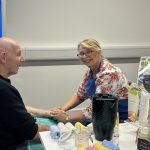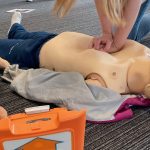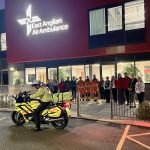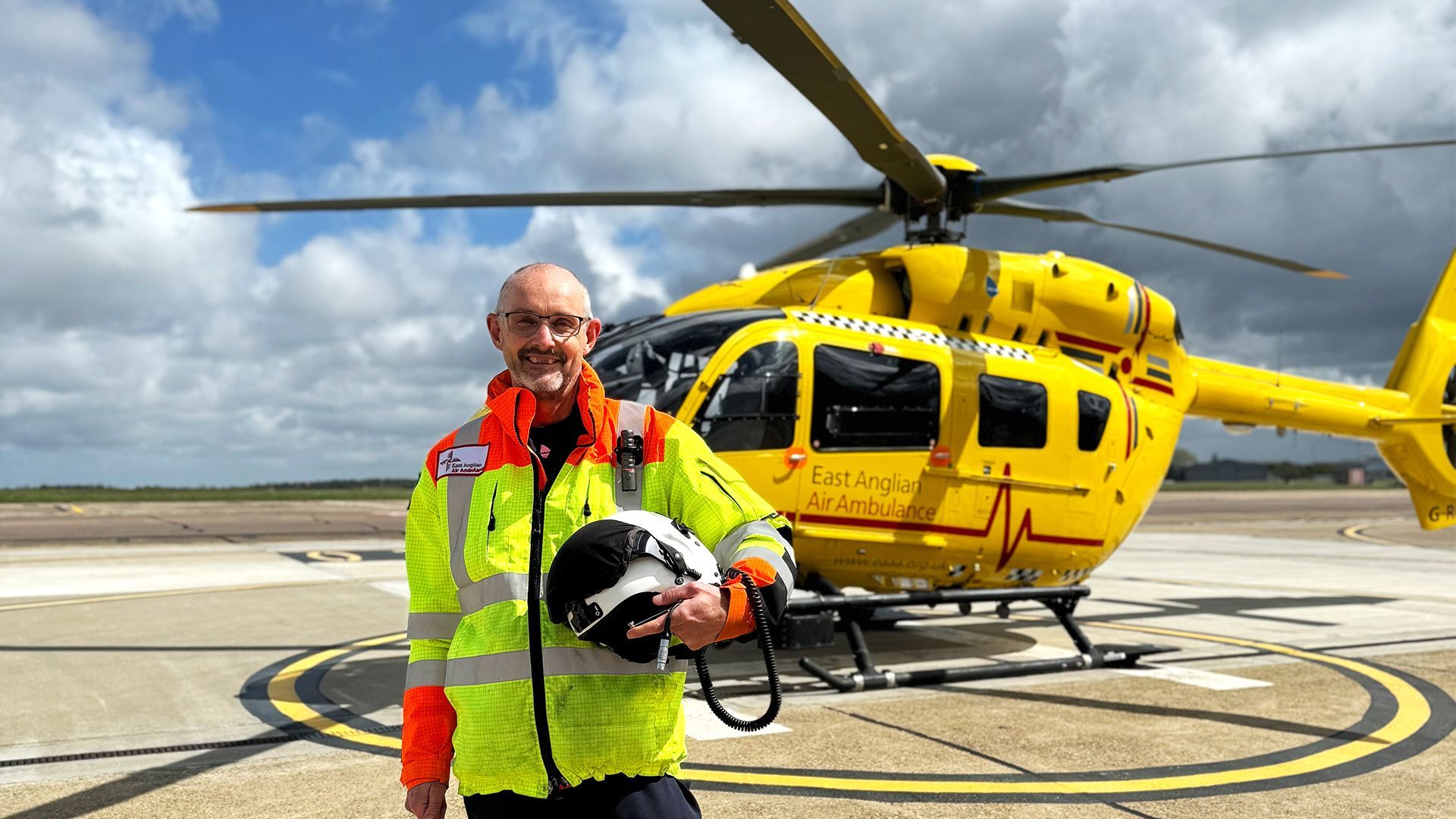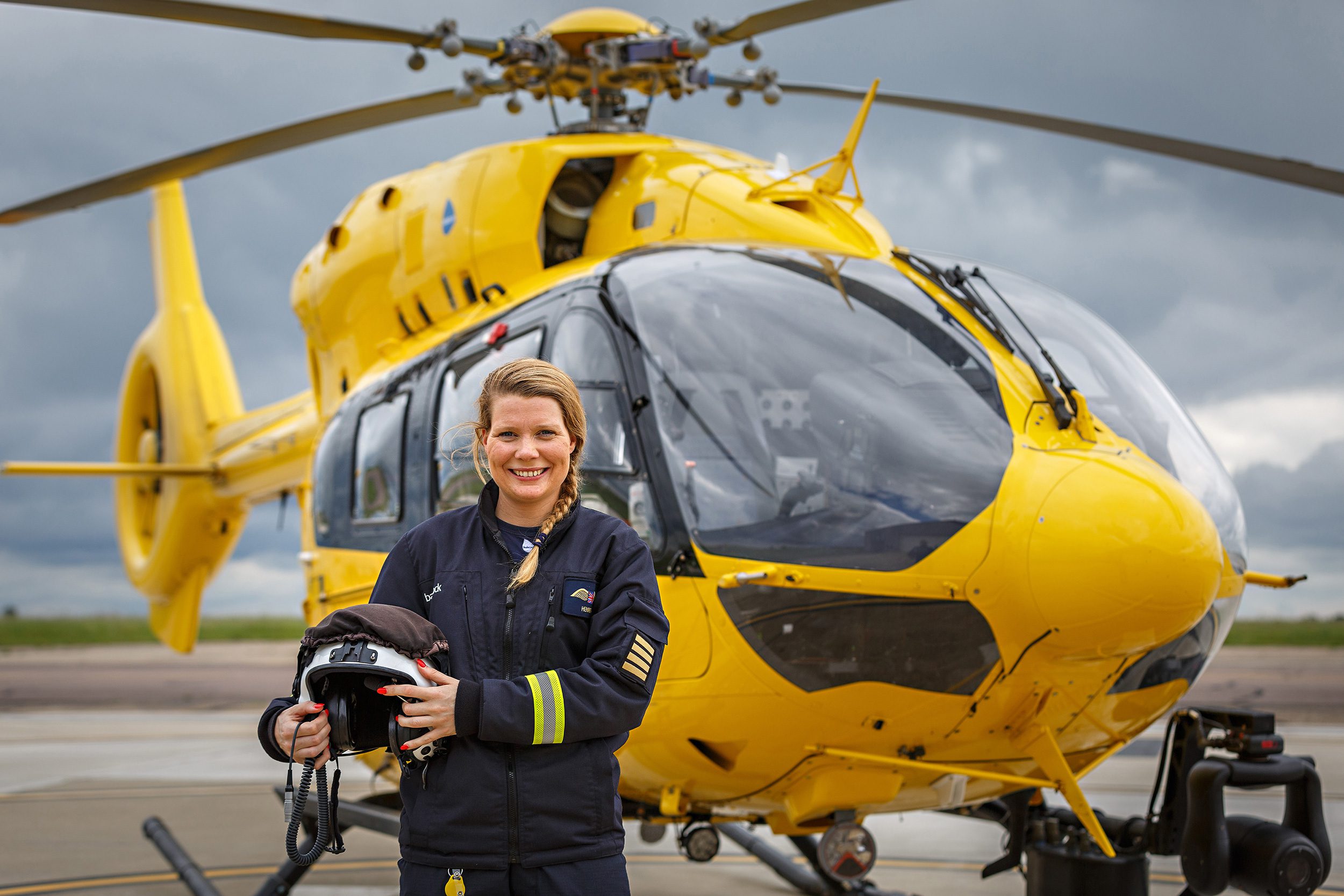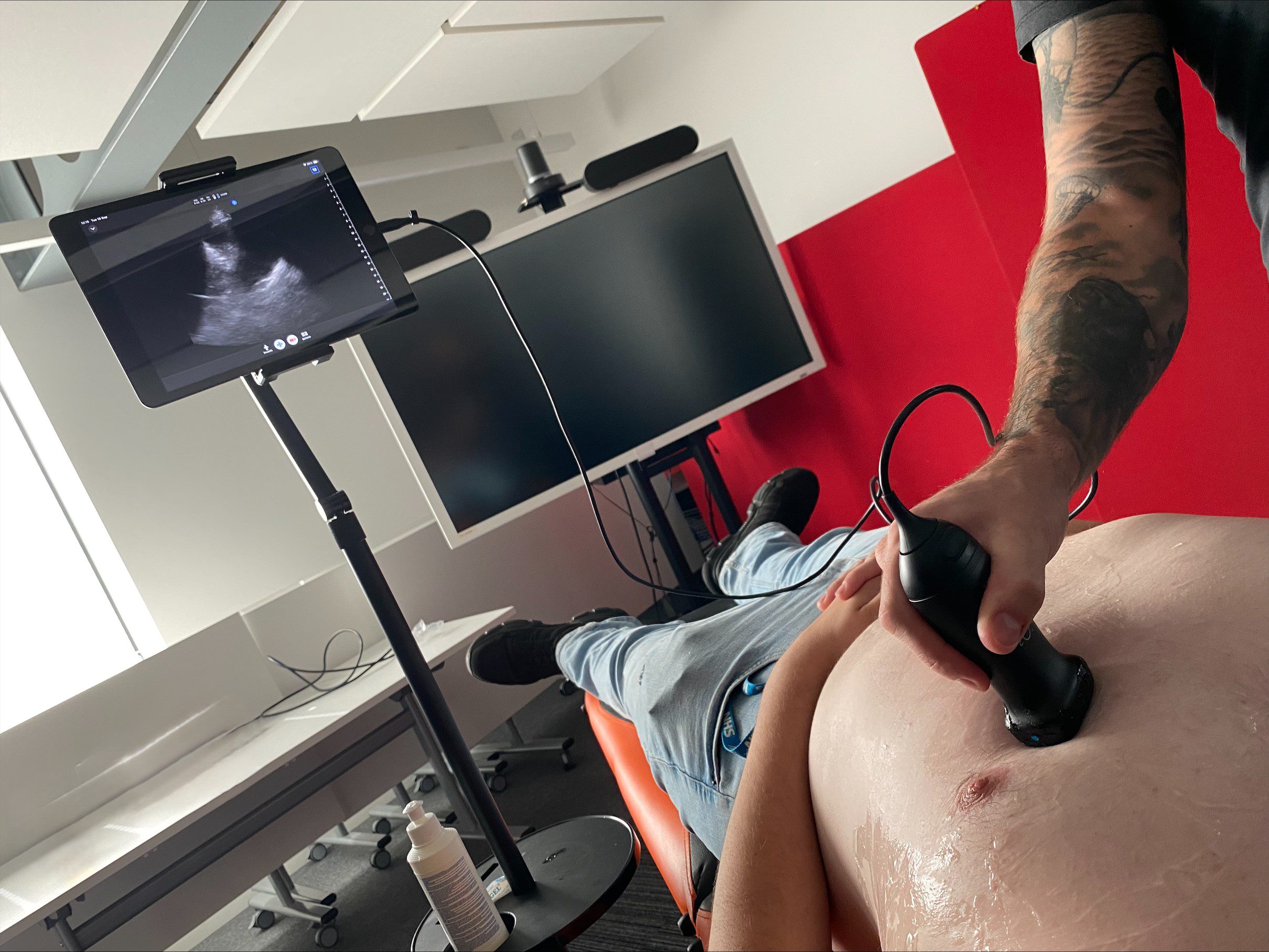27 Nov 2024
EAAA trials sustainable aviation fuel
EAAA has become the one of the first air ambulances in the UK to trial Sustainable Aviation Fuel (SAF). The one-off trial supports the charity’s pledge to become carbon neutral by 2040.
EAAA operates two Airbus H145 helicopters: G-RESU, call sign Anglia One, located at Norwich Airport and G-HEMC, code name Anglia Two, located at Cambridge Airport (Marshalls). SAF was trialled in our Norwich-based H145 aircraft earlier this year, in a bid to find solutions to reducing carbon emissions.
On July 3, 2024, G-RESU was refuelled with 470 litres of SAF from Norwich Airport, which was a blend of 30% SAF with 70% conventional Jet A1 fuel. The trial resulted in 90 minutes of flying time, covering two medical emergencies: a night tasking in West Norfolk, and a task the following day near the Norfolk/Suffolk border.
Matthew Jones, EAAA CEO says: “While almost chemically identical, SAF is made from renewable biomass and waste resources and can result in a reduction in carbon emissions by up to 80%. Currently, the aviation industry is heavily dependent on traditional fuel, but more steps are being taken by the industry to explore other options.”
Matthew continues, “This was a real opportunity to take learnings and positive steps towards achieving our carbon neutral goal. Balancing the need to serve our communities 24/7 by carrying out life-saving missions by air, with the need to be accountable and responsible for protecting the environment is a challenge, but one which EAAA is committed to progressing as and when the technology is reliably available and affordable.”
While SAF is currently more costly than traditional fuel, the expectation is that this won’t always be the case as technology and investment advances, and the benefits of SAF become more widely recognised.
Matthew adds, “While the charity acknowledges the SAF trial is only one small step towards becoming carbon neutral, it’s one we are pleased to take. We will determine the best way to achieve our goal while continuing to bring urgent critical care to the scene of medical emergencies across the region, 24/7.”
